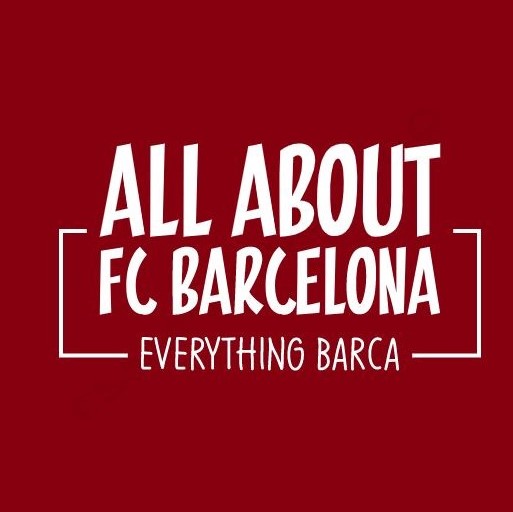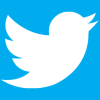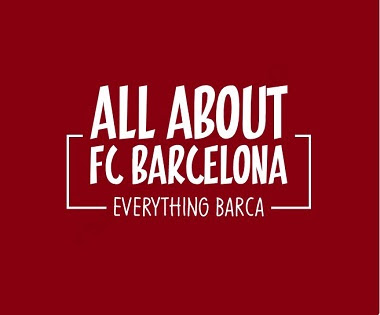Early years
On 22 October 1899 Joan Gamper placed an advert in Los Deportes declaring his wish to form a football club. A positive response resulted in a meeting at the Gimnasio Sole on November 29. Eleven players attended: Gualteri Wild, Lluís d'Ossó, Bartomeu Terradas, Otto Kunzle, Otto Maier, Enric Ducal, Pere Cabot, Carles Pujol, Josep Llobet, John Parsons, and William Parsons. As a result Foot-Ball Club Barcelona was born. Several other Spanish football clubs, most notably Real Madrid and Athletic Bilbao, also had British founders, and as a result they initially adopted English-style names.
FC Barcelona quickly emerged as one of the leading clubs in Spain and they participated in the first Campionat de Catalunya and the first Copa del Rey. They won their first trophy when they won the Copa Macaya in 1901. In 1902 the club also played in the first Copa del Rey final, losing 2-1 to Club Vizcaya.
The Gamper years
In 1908 Joan Gamper became club president for the first time. Gamper took over the presidency as the club was on the verge of folding. The club had not won anything since the Campionat de Catalunya of 1905 and its finances suffered as a result. Gamper was subsequently club president on five separate occasions between 1908 and 1925 and spent 25 years at the helm. One of his main achievements was to help Barça acquire its own stadium. On March 14 1909, it moved into the Carrer Industria, a stadium with a capacity of 6,000. Gamper also launched a campaign to recruit more club members and by 1922 the club had over 10,000. This led to the club moving again, this time to Les Corts. This stadium had an initial capacity of 20,000, later expanded to an impressive 60,000.
Gamper also recruited Paulino Alcántara, the club's all time top-scorer with 356 goals and in 1917 appointed Jack Greenwell as manager. This saw the club's fortunes begin to improve on the field. During the Gamper era FC Barcelona won eleven Campionat de Catalunya, six Copa del Rey and four Coupe de Pyrenées and enjoyed its first golden age. As well as Alcántara the Barça team under Greenwall also included Sagibarbá, Ricardo Zamora, Josep Samitier, Félix Sesúmaga and Franz Platko.
Rivalry with Real Madrid
There is often a fierce rivalry between the two strongest teams in a national league and this is particularly the case in La Liga, between FC Barcelona and Real Madrid. From the start the clubs were seen as representatives of the two rival regions of Spain, Catalonia and Castile, as well as of the two cities themselves. However the rivalry reached a new level during the Franco years when Real Madrid was widely considered to be the "regime team" while FC Barcelona was often regarded as the team of the opposition.
Although following the Spanish Civil War Real Madrid received considerable institutional assistance from the Franco regime, as he saw the club as the sporting embodiment of the Spain he wanted to create, during the war itself members of both clubs suffered at the hands of Franco supporters. FC Barcelona president Josep Sunyol was murdered while Real Madrid president Rafael Sánchez Guerra, a prominent Republican, was imprisoned and tortured. They also arrested and murdered a Real vice-president and club treasurer and an acting president disappeared. In 1940 Enric Pineyro, a Franco collaborator, was appointed club president. The rivalry with Real intensified further after the 1943 Copa del Generalísimo semi-final between the two clubs. The first leg at Les Corts ended in a 3-0 victory to Barça, but the return leg saw them defeated 11-1. It has been alleged by some that the FC Barcelona players were pressured into losing the game and even Pineyro resigned in protest. The rivalry with Real was exacerbated significantly in the 1950s by the dispute over Alfredo Di Stéfano.
The Cruyff years
The 1973/74 season saw the arrival of a new Barça legend – Johan Cruyff. Already an established player with Ajax, Cruyff quickly won over the Barça fans when he told the European press he chose Barça over Real Madrid because he could not play for a club associated with Franco. He further endeared himself when he chose a Catalan name, Jordi, for his son. He helped the club win La Liga for the first time since 1960, along the way defeating Real Madrid 5-0 at the Bernabéu. He was also crowned European Footballer of the Year twice in a row while at club.
Cruyff returned to the club as manager in 1988, assembling the so-called Dream Team, named after the US basketball team that played at the 1992 Olympic Games hosted by Barcelona. He introduced players like Josep Guardiola, José Mari Bakero, Txiki Beguiristain, Goikoetxea, Ronald Koeman, Michael Laudrup, Romário and Hristo Stoichkov. This team won La Liga four times between 1991 and 1994 and beat Sampdoria in both the 1989 European Cup Winners' Cup final and the 1992 European Cup final at Wembley. They also won a Copa del Rey in 1990, the European Super Cup in 1992 and three Supercopa de España. With 11 trophies, Cruyff has been the club's most successful manager to date. He is also the club's longest serving manager. However, in his final two seasons, he failed to win any trophies and fell out with Josep Lluís Nuñez. This resulted in his departure.
The Nuñez years
Josep Lluís Nuñez was elected president of FC Barcelona in 1978. His main objectives were to establish Barça as a world-class sports club and to give the club financial stability.
In 1979 and 1982 the club won two of four European Cup Winners' Cups won in the Nuñez era. In 1982 Diego Maradona was signed for a world record fee from Boca Juniors. However his time with Barça was short-lived and unsuccessful and he soon left for Napoli. In 1985 under Terry Venables Barça won La Liga and in 1986 he took the team to their second European Cup final, only to lose on penalties to Steaua Bucharest.
In 1988 Nuñez appointed Johan Cruyff as manager. Despite the latter's success with the Dream Team (see section above), personal differences saw Nuñez sacking him in 1996. He was temporarily replaced by Bobby Robson who took charge of the club for a single season in 1996/97. He recruited Ronaldo from his previous club, PSV Eindhoven and delivered a cup treble winning the Copa del Rey, European Cup Winners Cup and the Supercopa de España. Among Robson’s non-playing staff was José Mourinho, who assisted with training and acted as translator.
Despite his success, Robson was only ever seen as a short-term solution while the club waited for Louis van Gaal to become available. Like Maradona, Ronaldo only stayed a short time and he left for Internazionale. However, new heroes such as Luís Figo, Luis Enrique and Rivaldo emerged and the team won a Copa del Rey/La Liga double in 1998. In 1999 they retained the La Liga title and Rivaldo became the fourth Barça player to be awarded European Footballer of the Year. Despite this domestic success, the failure to emulate Real Madrid in the UEFA Champions League led to Van Gaal and Nuñez resigning in 2000.
Departure of Figo
The departures of Nuñez and Van Gaal were nothing compared to that of Luís Figo. As well as club captain, Figo had become a cult hero and was considered by Catalans to be one of their own. It is widely believed that his dislike of the new president, Joan Gaspart, triggered his departure for arch-rivals Real Madrid. The Barça fans were distraught by Figo’s decision to join Real and during subsequent visits to the Camp Nou Figo was given an extremely hostile reception, including one occasion when a pig's head was thrown at him from the crowd. The next three years saw the club in decline and managers came and went, including a short second spell by Louis van Gaal. Gaspart did not inspire confidence off the field either and in 2003 he and Van Gaal resigned.
The Laporta / Rijkaard years
After the disappointment of the Gaspart era, a combination of a new president, Joan Laporta and a new manager, Frank Rijkaard saw the club bounce back. After a shaky first half of the 2003/2004 season that left them lying mid-table in the league, a stunning run of form after the winter break pulled them up the table, eventually finishing second behind Valencia, and above arch-rivals Real Madrid. On the field an influx of talented players (Ronaldinho, Deco, Ludovic Giuly and Samuel Eto'o) and experienced professionals (Henrik Larsson, Rafael Márquez and Giovanni van Bronckhorst) combined with a nucleus of home grown players (Carles Puyol, Andrés Iniesta, Xavi and Víctor Valdés) saw the club win La Liga and the Supercopa de España in 2005. Ronaldinho was also added to the list of Barça players voted European Footballer of the Year. The only disappointment was the defeat against Chelsea in the Round of 16 of the UEFA Champions League. A significant rivalry between the two clubs has existed since.
For 2005/2006 the team was strengthened with arrival of Mark van Bommel and the emergence of Lionel Messi. They subsequently retained the La Liga title and won the UEFA Champions League and the Spanish Supercup.
For the 2006/2007 season Barcelona bought Eiður Guðjohnsen from Chelsea to fill the gap left by the departing Henrik Larsson, and the defenders Gianluca Zambrotta and Lilian Thuram from Juventus after the latter's relegation to the Italian Serie B due to the 2006 Serie A scandal. Javier Saviola also returned to the squad after failing to sign for another team. The team has since won the Spanish Supercup against Espanyol, but lost the European Supercup to Sevilla F.C..
In September 2006, following a judicial ruling that he had remained in office after his term had expired, Laporta was automatically re-elected as the new president of the club, as he was the only candidate who managed to obtain the required number of signatures backing his candidacy.
On 7 September 2006, an agreement between FC Barcelona and UNICEF was reached whereby the club would donate 0.7% of its total yearly revenue to the organization for five years. As part of the agreement, FC Barcelona will wear the UNICEF logo on the front of their shirts, which will be the first time in club history that the logo of another organization (save for the logos of the athletic manufacturers of the shirts) will be present.
On 22 October 1899 Joan Gamper placed an advert in Los Deportes declaring his wish to form a football club. A positive response resulted in a meeting at the Gimnasio Sole on November 29. Eleven players attended: Gualteri Wild, Lluís d'Ossó, Bartomeu Terradas, Otto Kunzle, Otto Maier, Enric Ducal, Pere Cabot, Carles Pujol, Josep Llobet, John Parsons, and William Parsons. As a result Foot-Ball Club Barcelona was born. Several other Spanish football clubs, most notably Real Madrid and Athletic Bilbao, also had British founders, and as a result they initially adopted English-style names.
FC Barcelona quickly emerged as one of the leading clubs in Spain and they participated in the first Campionat de Catalunya and the first Copa del Rey. They won their first trophy when they won the Copa Macaya in 1901. In 1902 the club also played in the first Copa del Rey final, losing 2-1 to Club Vizcaya.
The Gamper years
In 1908 Joan Gamper became club president for the first time. Gamper took over the presidency as the club was on the verge of folding. The club had not won anything since the Campionat de Catalunya of 1905 and its finances suffered as a result. Gamper was subsequently club president on five separate occasions between 1908 and 1925 and spent 25 years at the helm. One of his main achievements was to help Barça acquire its own stadium. On March 14 1909, it moved into the Carrer Industria, a stadium with a capacity of 6,000. Gamper also launched a campaign to recruit more club members and by 1922 the club had over 10,000. This led to the club moving again, this time to Les Corts. This stadium had an initial capacity of 20,000, later expanded to an impressive 60,000.
Gamper also recruited Paulino Alcántara, the club's all time top-scorer with 356 goals and in 1917 appointed Jack Greenwell as manager. This saw the club's fortunes begin to improve on the field. During the Gamper era FC Barcelona won eleven Campionat de Catalunya, six Copa del Rey and four Coupe de Pyrenées and enjoyed its first golden age. As well as Alcántara the Barça team under Greenwall also included Sagibarbá, Ricardo Zamora, Josep Samitier, Félix Sesúmaga and Franz Platko.
Rivalry with Real Madrid
There is often a fierce rivalry between the two strongest teams in a national league and this is particularly the case in La Liga, between FC Barcelona and Real Madrid. From the start the clubs were seen as representatives of the two rival regions of Spain, Catalonia and Castile, as well as of the two cities themselves. However the rivalry reached a new level during the Franco years when Real Madrid was widely considered to be the "regime team" while FC Barcelona was often regarded as the team of the opposition.
Although following the Spanish Civil War Real Madrid received considerable institutional assistance from the Franco regime, as he saw the club as the sporting embodiment of the Spain he wanted to create, during the war itself members of both clubs suffered at the hands of Franco supporters. FC Barcelona president Josep Sunyol was murdered while Real Madrid president Rafael Sánchez Guerra, a prominent Republican, was imprisoned and tortured. They also arrested and murdered a Real vice-president and club treasurer and an acting president disappeared. In 1940 Enric Pineyro, a Franco collaborator, was appointed club president. The rivalry with Real intensified further after the 1943 Copa del Generalísimo semi-final between the two clubs. The first leg at Les Corts ended in a 3-0 victory to Barça, but the return leg saw them defeated 11-1. It has been alleged by some that the FC Barcelona players were pressured into losing the game and even Pineyro resigned in protest. The rivalry with Real was exacerbated significantly in the 1950s by the dispute over Alfredo Di Stéfano.
The Cruyff years
The 1973/74 season saw the arrival of a new Barça legend – Johan Cruyff. Already an established player with Ajax, Cruyff quickly won over the Barça fans when he told the European press he chose Barça over Real Madrid because he could not play for a club associated with Franco. He further endeared himself when he chose a Catalan name, Jordi, for his son. He helped the club win La Liga for the first time since 1960, along the way defeating Real Madrid 5-0 at the Bernabéu. He was also crowned European Footballer of the Year twice in a row while at club.
Cruyff returned to the club as manager in 1988, assembling the so-called Dream Team, named after the US basketball team that played at the 1992 Olympic Games hosted by Barcelona. He introduced players like Josep Guardiola, José Mari Bakero, Txiki Beguiristain, Goikoetxea, Ronald Koeman, Michael Laudrup, Romário and Hristo Stoichkov. This team won La Liga four times between 1991 and 1994 and beat Sampdoria in both the 1989 European Cup Winners' Cup final and the 1992 European Cup final at Wembley. They also won a Copa del Rey in 1990, the European Super Cup in 1992 and three Supercopa de España. With 11 trophies, Cruyff has been the club's most successful manager to date. He is also the club's longest serving manager. However, in his final two seasons, he failed to win any trophies and fell out with Josep Lluís Nuñez. This resulted in his departure.
The Nuñez years
Josep Lluís Nuñez was elected president of FC Barcelona in 1978. His main objectives were to establish Barça as a world-class sports club and to give the club financial stability.
In 1979 and 1982 the club won two of four European Cup Winners' Cups won in the Nuñez era. In 1982 Diego Maradona was signed for a world record fee from Boca Juniors. However his time with Barça was short-lived and unsuccessful and he soon left for Napoli. In 1985 under Terry Venables Barça won La Liga and in 1986 he took the team to their second European Cup final, only to lose on penalties to Steaua Bucharest.
In 1988 Nuñez appointed Johan Cruyff as manager. Despite the latter's success with the Dream Team (see section above), personal differences saw Nuñez sacking him in 1996. He was temporarily replaced by Bobby Robson who took charge of the club for a single season in 1996/97. He recruited Ronaldo from his previous club, PSV Eindhoven and delivered a cup treble winning the Copa del Rey, European Cup Winners Cup and the Supercopa de España. Among Robson’s non-playing staff was José Mourinho, who assisted with training and acted as translator.
Despite his success, Robson was only ever seen as a short-term solution while the club waited for Louis van Gaal to become available. Like Maradona, Ronaldo only stayed a short time and he left for Internazionale. However, new heroes such as Luís Figo, Luis Enrique and Rivaldo emerged and the team won a Copa del Rey/La Liga double in 1998. In 1999 they retained the La Liga title and Rivaldo became the fourth Barça player to be awarded European Footballer of the Year. Despite this domestic success, the failure to emulate Real Madrid in the UEFA Champions League led to Van Gaal and Nuñez resigning in 2000.
Departure of Figo
The departures of Nuñez and Van Gaal were nothing compared to that of Luís Figo. As well as club captain, Figo had become a cult hero and was considered by Catalans to be one of their own. It is widely believed that his dislike of the new president, Joan Gaspart, triggered his departure for arch-rivals Real Madrid. The Barça fans were distraught by Figo’s decision to join Real and during subsequent visits to the Camp Nou Figo was given an extremely hostile reception, including one occasion when a pig's head was thrown at him from the crowd. The next three years saw the club in decline and managers came and went, including a short second spell by Louis van Gaal. Gaspart did not inspire confidence off the field either and in 2003 he and Van Gaal resigned.
The Laporta / Rijkaard years
After the disappointment of the Gaspart era, a combination of a new president, Joan Laporta and a new manager, Frank Rijkaard saw the club bounce back. After a shaky first half of the 2003/2004 season that left them lying mid-table in the league, a stunning run of form after the winter break pulled them up the table, eventually finishing second behind Valencia, and above arch-rivals Real Madrid. On the field an influx of talented players (Ronaldinho, Deco, Ludovic Giuly and Samuel Eto'o) and experienced professionals (Henrik Larsson, Rafael Márquez and Giovanni van Bronckhorst) combined with a nucleus of home grown players (Carles Puyol, Andrés Iniesta, Xavi and Víctor Valdés) saw the club win La Liga and the Supercopa de España in 2005. Ronaldinho was also added to the list of Barça players voted European Footballer of the Year. The only disappointment was the defeat against Chelsea in the Round of 16 of the UEFA Champions League. A significant rivalry between the two clubs has existed since.
For 2005/2006 the team was strengthened with arrival of Mark van Bommel and the emergence of Lionel Messi. They subsequently retained the La Liga title and won the UEFA Champions League and the Spanish Supercup.
For the 2006/2007 season Barcelona bought Eiður Guðjohnsen from Chelsea to fill the gap left by the departing Henrik Larsson, and the defenders Gianluca Zambrotta and Lilian Thuram from Juventus after the latter's relegation to the Italian Serie B due to the 2006 Serie A scandal. Javier Saviola also returned to the squad after failing to sign for another team. The team has since won the Spanish Supercup against Espanyol, but lost the European Supercup to Sevilla F.C..
In September 2006, following a judicial ruling that he had remained in office after his term had expired, Laporta was automatically re-elected as the new president of the club, as he was the only candidate who managed to obtain the required number of signatures backing his candidacy.
On 7 September 2006, an agreement between FC Barcelona and UNICEF was reached whereby the club would donate 0.7% of its total yearly revenue to the organization for five years. As part of the agreement, FC Barcelona will wear the UNICEF logo on the front of their shirts, which will be the first time in club history that the logo of another organization (save for the logos of the athletic manufacturers of the shirts) will be present.
All About FC Barcelona

AllAboutFCBarcelona.com is a Blog dedicated to the Most prestigous Club in the world, FC Barcelona by an ardent fan. Here I discuss about the Latest happening surrounding our Club and present my Views about the same.












